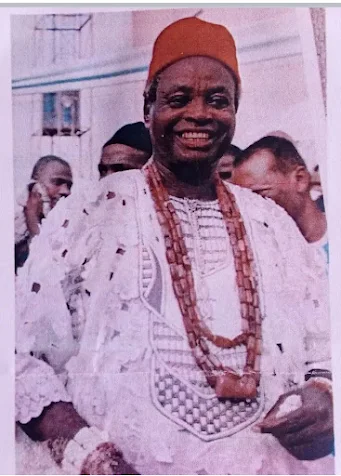By Polycarp Onwubiko
One of the villages, Ngene, in Amawbia, the Awka capital territory, celebrated what it called the "Ezeariam festival." One of the prominent highlights of the event was the conferment of traditional titles to personages by an individual who is not the traditional ruler of the community, as the community has lost its traditional ruler and is in the process of selecting a new traditional ruler, Okpaligwe.The curious aspect of the
celebration is that, aside from the fact that there is nothing wrong with
villages and communities having yearly festivals, the conferment of chieftaincy
titles, according to the Anambra State Edict on traditional rulers, is the
exclusive prerogative of traditional rulers even in the entire Igbo land.
Aggrieved by the blatant
impunity exhibited by the individual and his supporters who endorsed the
conferment of chieftaincy titles, the head of Amawbia Ozo title holders, Chief
Dan Chukwuma Maduka, described the act as the height of crass impunity, tarnishing
the revered Igbo titles.
"It is utterly despicable
and shameful, especially as the individual who conducted the conferment is not
a traditional ruler of Amawbia, assuming the responsibilities of a
government-recognized traditional ruler," remarked Maduka.
Citing the case of the
traditional ruler of Neni, who breached protocol by not securing the approval
of the Honorable Commissioner, Ministry of Local Government and Town Union
Matters before conferring a chieftaincy title to the Senator representing Anambra
South Senatorial District, Dr. Ifeanyi Uba, Maduka questioned if the Honorable
Commissioner was aware of the inappropriate incident in Ngene village, Amawbia.
Maduka, who served as the
president-general of Amawbia town union from 1978 to 1983 and is also the chief
custodian of authority for Amawbia tradition and customs, recalled how the
traditional ruler of Lagos State, Oba Akran, sought permission from the
Governor of Lagos State before conferring on him the prestigious traditional
title of Eze Igbo of Badagry.
The traditional chieftain
condemned the conferment of a chieftaincy title on the former Chief of Army
Staff, General Burutai, by the traditional ruler of Aguleri. He questioned the
landmark achievements of the soldier during President Buhari's administration
when Islamic terrorists, militias, and insurgents were indiscriminately
slaughtering people and occupying territories. He also expressed concern about
terrorists masquerading as herdsmen from the Sahel region of West Africa
killing Christians and occupying their ancestral homelands, while displaced
people languished in makeshift refuge settlements. Furthermore, he criticized
the security agencies, including the army, for not fulfilling their
constitutional responsibility of protecting the people from genocidal actions
by terrorists.
"When Igbo land was truly
Igbo land, such thoughtless actions would be openly castigated and termed
'alu,'" he advised Governor Soludo to ensure that such reckless actions do
not occur in the state.
Regarding education, he
commended Soludo for implementing free education for primary and secondary
schools and urged the people of Anambra State to remain loyal to APGA,
emphasizing that switching to another political party would spell doom for the
people.
"It is only the outside
world that recognizes Prof. Soludo because during his tenure in the Central
Bank of Nigeria (CBN), he revolutionized the banking system, bringing stability
to the banking sector and the economy in general.
On the national level, Maduka urged
President Tinubu to adhere to his Federalist mindset and reject any covert
understanding he might have with a section of the country opposing the
convocation of a National Conference of ethnic nationalities. He stressed the
need to negotiate and create a People's Constitution similar to the
Independence Constitution, later renamed the 1963 Constitution, to restore the
country to its realistic principles of federalism, including a decentralized
security architecture, which remains the effective and efficient security
arrangement in True Federations worldwide.
Polycarp Onwubiko, Public
Policy Analyst


Post a Comment